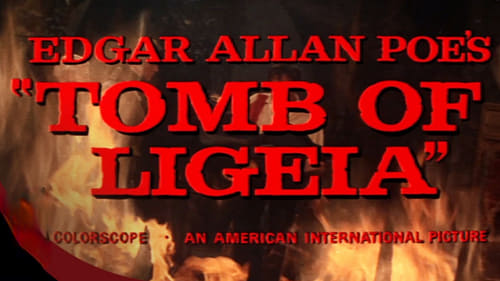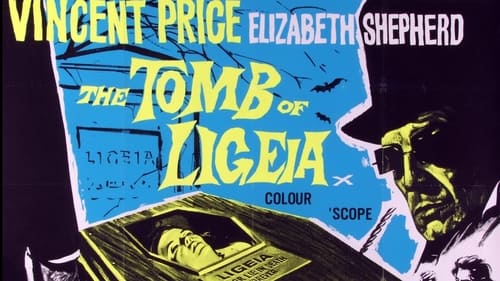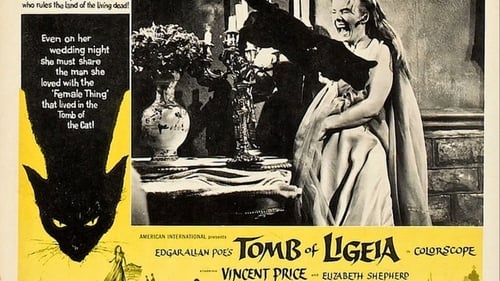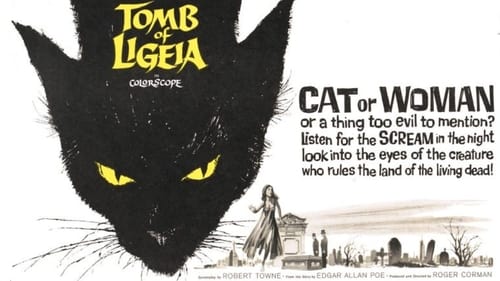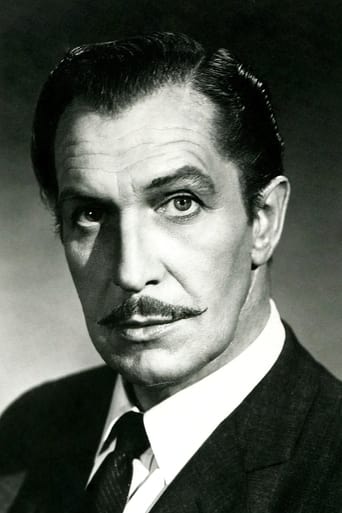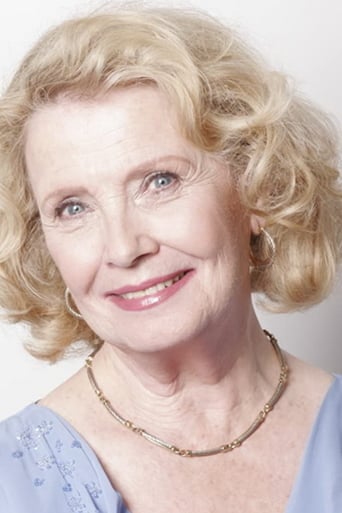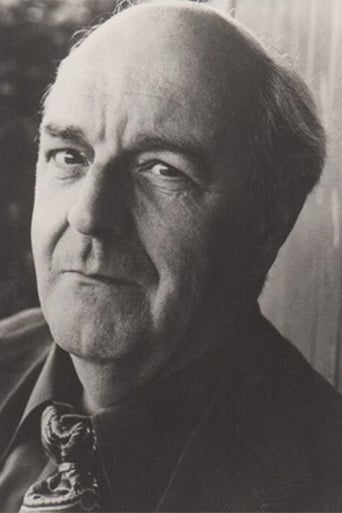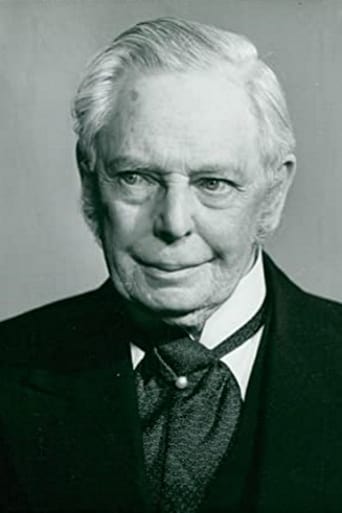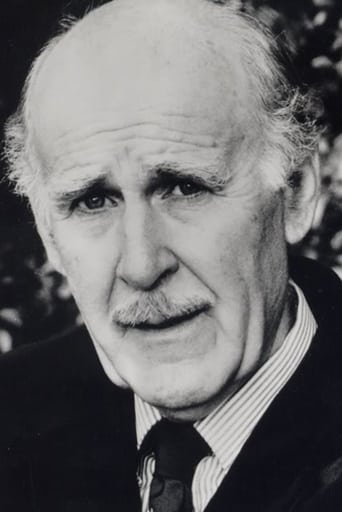TrueJoshNight
Truly Dreadful Film
Tetrady
not as good as all the hype
Btexxamar
I like Black Panther, but I didn't like this movie.
GetPapa
Far from Perfect, Far from Terrible
tapio_hietamaki
These Vincent Price movies based on Edgar Allan Poe stories are charming, much in the same way as Hammer Horror movies but less campy. The Price movies take themselves more seriously, they're more aristocratic and more subdued in a sense. There's always some ancient mansion, and Vincent Price's character harbors some dark mystery, and the end is bloody and tragic.'The Tomb of Ligeia' is remembered as the one with the cat. A socialite lady falls in love with a brooding, light-sensitive widower and they marry, but she feels unwelcome in his house and is haunted by the ghost of her previous wife in the form of a black cat. What a premise! Beautiful Technicolor, landscapes, ruins, white marble tombs and ancient Egypt artifacts are aplenty, there's always something interesting to look at on the screen, and though Vincent Price always seems to deliver the exact same performance, his voice is pleasant to the ears every time.
Johan Louwet
This being the last adaptation by Corman of one of Poe's stories it surely wasn't a memorable closure. For me it remained way below the level of the first two adaptations "The House of Usher" and "Pit and the Pendulum". Still it was better than "The Raven" and I would say on the same level as "The Haunting Palace". Yes The tomb of Ligeia is actually more about visuals and a few nightmarish scenes starring a black cat than telling an interesting story. Also the characters remained largely underdeveloped. Vincent Price as noble man Verden Fell not being able to forget his deceased wife Ligeia also fell quite flat. With him wearing dark glasses in most of the scenes it almost seemed he was someone from the future having traveled through a time machine. Elizabeth Shepherd beautiful as she was playing both deceased (Ligeia) and new wife (Rowena) of Verden, does not do much else than running and screaming in here. The way Rowena fell in 'love' with Verden was one of the most unconvincing I have ever seen.
mark.waltz
Poor Vincent Price. Always a widower, never at peace with his dead wife looking over his shoulder, ready to pounce like a Fruma Sarah. Elizabeth Shepherd gets the privilege of being both good and evil, blonde and brunette, and possibly going in between life and death as fast as the black cat prowling Price's castle howls or hisses. As usual, Price is a brooding Heathcliff/Maxim de Winter type character, not outwardly evil, but with Price you never can be too sure. He is desperately afraid of sunlight so he wears the strangest looking sunglasses in film history. Like any good well-bred English countryside neighbor, Shepherd's "Lady Rowena" is gallivanting across Price's property (which seems to have belonged to his late wife Ligeia, not Price), and after falling right atop Ligeia's grave, she encounters the dour Price and a rather strange relationship begins between the two. It's obvious from hints Price's character gives that Ligeia would never allow him to re-marry, so when they do, it's no surprise that legal ramifications make the marriage not recognized by the law. The angry black cat doesn't like Rowena either, violently attacking Shepherd and growling at her every chance it gets. This soon leads to a showdown between wife #2, the furious feline and whatever is lingering in the middle-ages like castle of Ligeia's evil spirit.Slow moving, moody but romantic, this never fully explains what Ligeia was supposed to be in life. Witch? Devil worshiper? Succubus? The audience is left to decide, but one thing we are instantly aware of is that this isn't going to be a happy relationship between Price and wife #2. John Westbrook is present as Rowena's admirer/protector who comes to Shepherd's rescue on a number of occasions. Shepherd has a dream of husband/cat/first wife that is part horrific nightmare, somewhat comical, and definitely a sign to me that her first response would be to get as far away as you can as fast as possible. Encounters between Shepherd and the cat are very frightening, and those who love cats will be very disturbed by Price's reaction to this creature who definitely represents evil. Like other American International/Vincent Price/Roger Corman/Edgar Allan Poe Gothic horror tales, this depends a lot on the wrath of fire to conclude its story. It isn't one I would watch again over and over (missing the humor and camp element of "The Pit and the Pendulum" and "The House of Usher") but it is definitely one that will leave you with a few chills.
ackstasis
Roger Corman is often celebrated for his economies, but nobody ever told me that he was also a wonderful cinematic craftsman. 'The Tomb of Ligeia (1964)' is my second Corman film (after the throwaway cheapie 'The Little Shop of Horrors (1960)'), and I'm now intrigued by the prospect of seeing his other Edgar Allan Poe-inspired creations. Horror maestro Vincent Price stars as Verden Fell, a wealthy widower who becomes obsessed by the possibility that his deceased wife somehow survives. Inexplicably drawn to Verden's sinister charms, the lovely Lady Rowena (Elizabeth Shepherd) agrees to marry him. However, on their wedding night, she is tormented by the memory of her predecessor, who seemingly takes the form of an ominous black cat. Though one could argue that nothing much happens in this film, it is nevertheless exceedingly dense with atmosphere, almost stiflingly so, every frame an overwhelming banquet of garish colours. The darkness of the nighttime is vividly punctuated by the gleaming scarlet of blood, hellish yellow flames, and an invisible black enemy that skulks in the shadows.While I don't expect that 'The Tomb of Ligeia' stays particularly close to the original story, the screenplay from Robert Towne (later to write 'Chinatown (1974)') emulates the gloomy Gothic overtones of classic Poe. Discomfort is gleaned, not only from the dialogue, but the silences between words. Not that Verden Fell is not given his fair share of dialogue; the film is so apparently entranced by the dark, charismatic tones of Price's voice that he often breaks off into superb, meandering monologues that give voice to the obvious. Not that the audience is complaining, of course – the way Price presents himself to the camera, with complete and utter conviction, is mesmerising. While the film, of course, owes a debt to Poe's literature, it is also an expansion of the Gothic melodrama sub-genre of the 1940s. Consider Hitchcock's 'Rebecca (1940),' in which young innocent Joan Fontaine is plagued by the "ghost" of her husband's previous wife; or Mankiewicz's 'Dragonwyck (1946),' which finds Gene Tierney harassed by her mentally deranged husband – played, appropriately, by Vincent Price.


